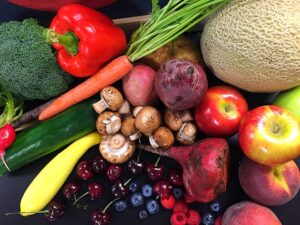
In Ukraine, only 471 thousand hectares are engaged in organic production, they need to increase, because the country keeps the course on deep processing, said the Minister of Agrarian Policy and Food Vitaly Koval at the conference dedicated to the organic market of Ukraine and its prospects.
“Regarding the first: organics is the closest to the settlement of all EU legislative processes. And if we are now among the top five in the supply of organic products to Europe, our task is to become the first. We have the space, the desire and the experience that our people have,” the press service of the Ministry of Agrarian Policy and Food quoted him as saying.
Koval emphasized the importance of exporting finished products, not raw materials. At the same time, they should meet the EU requirements.
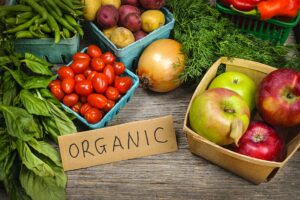
In January-June 2024, the clients of the Organic Standard certification company set a record and exported 75.34 thousand tons of organic products, which is 32.3% more than in the same period in 2023, the company’s press service reported on its Facebook page.
According to the report, Ukraine exported 56.954 million tons in the first six months of 2023, 47.863 million tons in 2022, and 32.354 million tons in 2021.
“These figures are not just statistics. They reflect the steady growth of Ukrainian organic products on international markets. Step by step, thanks to high quality and strict adherence to international standards, our customers are confidently strengthening their positions in the world,” the company said.
This result was achieved due to the consistently high quality of products, confirmed by certification according to international standards, and the growing demand for organic products, Organic Standard summarized.
Organic Standard LLC is the first Ukrainian certification body that inspects and certifies organic production. It was established in 2007 as part of the Ukrainian-Swiss project “Organic Certification and Development of the Organic Market in Ukraine”.
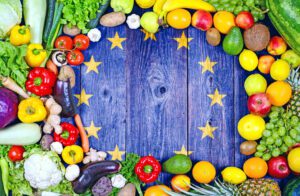
Exports of organic products from Ukraine to the countries of the European Union and Switzerland in January-June 2022 increased by 19.4% compared to the first half of 2021 – up to 160,020 tonnes from 128,840 tonnes, this happened despite problems with logistics and the blockade of Ukrainian seaports due to full-scale Russian aggression.
According to the website of the information portal OrganicInfo, by the end of 2022, Ukraine is expected to reduce land under organic products due to the temporary occupation of its southern regions. At the same time, in the Ukrainian territories liberated from Russian occupation in early April, the work of organic producers has been almost completely resumed this season.
It is specified that in general, in 2021, Ukraine exported about 260,000 tonnes of organic products for a total amount of about $220 million to more than 30 countries of the world, of which 82% of the revenue came from the EU countries.
“In 2021, Ukraine slightly reduced the volume of supplies of organic products to the EU, but still remains in the TOP 5 largest suppliers of organic products in the EU. In 2021 the total share of Ukrainian imports amounted to 6.6% (of all imports to the EU),” OrganicInfo said.
OrganicInfo is an information portal created by the international charitable environmental organization Green Dossier, which aims to promote organic production, organic food and sustainable lifestyles.
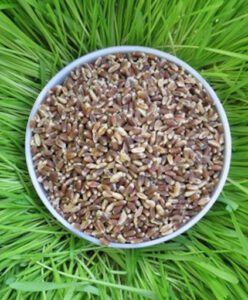
Exports of Ukrainian organic products to the countries of the European Union in 2020 decreased by 23.1% compared to 2019, to 217,210 tonnes. According to the June report of the European Commission, last year Ukraine ranked fourth in the world among suppliers of organic products to this market, its total share of supplies amounted to 7.8%.
Organic cereals (excluding wheat and rice cereals) became the main Ukrainian export crop to the EU organic market, their exports in 2020 sank by 44%, to 82,900 tonnes. Despite the decline, Ukraine remained the main supplier to the European Union, its share amounted to 74.4% of the total supply.
Exports of organic soybeans from Ukraine to the EU in 2020 increased by 67.8% compared to 2019, to 28.7% (21% of the world exports to Europe), organic oilseeds decreased by one third, to 19,300 tonnes (14.1%), oilseed meal – by 9.4%, to 7,400 tonnes (3.2%).
In 2020, Ukraine also exported 5.9% more fresh and dried organic vegetables to the EU than in 2019, 15,500 tonnes, while the export of fresh, chilled and dried organic vegetables decreased by 13.2%, to 5,400 tonnes.
As reported, the Ministry of Economy in April 2021 planned to allocate UAH 50 million for the development of organic production, the amount of state support may increase due to the redistribution of funds from other state programs.
The ministry intends to provide financial support to organic producers in the amount of UAH 5,000 per hectare of cultivated land (but not more than 20 hectares per farm), as well as for one animal (cattle). In addition, farmers will receive refunds of up to 30% of the cost of certification of organic production.
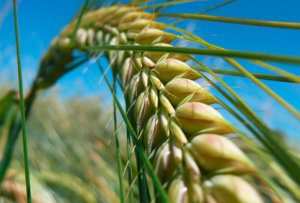
Ukraine of the total sales of organic raw materials and products exports 90% of goods and sells 10% in the domestic market.
“The domestic market, despite the fact that it is developing, occupies 10% of total sales, while 90% of “organic” goods are exported. Among the leading countries consuming Ukrainian organic products are the Netherlands, Germany, and the United Kingdom,” Olena Berezovska, the president of the Organic Ukraine union of producers of organic certified goods said at a press conference in Kyiv.
In total, Ukraine exports its organic products to more than 40 countries. Among the exported organic crops are maize (99,500 tonnes in 2017), wheat (58,000 tonnes), barley (22,900 tonnes), sunflower (11,600 tonnes), and soybeans (10,900 tonnes).
“According to the Organic Standard certification authority, Ukraine has 585 operators in the organic market. When we summarize statistics data for 2018, the number of organic producers will exceed 600. Now 14% of the total number of operators are processors. Of the 80 processors, 55 sell their products in the stores of the country. The growth in the sales of organic products in the key networks of Ukraine during 2018 amounted to 5%. There are more than 400 items in the product range,” Berezovska said.
According to her, in 2018 a number of Ukrainian manufacturers received the status of “organic.”

President of Ukraine Petro Poroshenko has signed the law on basic principles and requirements for organic production, circulation and labeling of organic products, the presidential press service has said. According to the report, the implementation of the norms of the law will ensure the improvement and harmonization of the Ukrainian legislation with the legislation of the European Union in the sphere of production and circulation of organic goods and will help create transparent business conditions, reduce unfair competition, increase the competitiveness of domestic organic products and expand foreign markets for its sale.
The law establishes the basic principles and requirements for organic production, circulation and labeling of organic products, the basis for the legal regulation of organic production, the circulation of organic products and the functioning of the market of such goods. The legal basis for the activity of central executive authorities, the subjects of the organic products market and the direction of state policy in these areas are also defined.
As reported, the Verkhovna Rada on July 10 at second reading and as a whole adopted law No. 5448-d on basic principles and requirements for organic production, circulation and labeling of organic products. Some 237 people’s deputies voted for the document with the quorum being 226 votes.